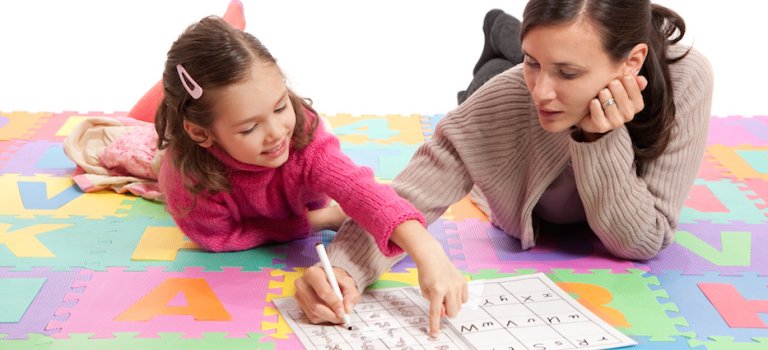
Kindergarten is an important time to build on the learning foundations, which ideally should have begun from the age of 2. In Kindergarten, the focus is on social and communication skills initially as opposed to academic rigor. In addition to your child knowing his ABCs and numbers, it is important to concentrate on his ability to cooperate, to communicate with peers, and to follow directions in order to build confidence.
Here are the top 5 ways to prepare your child for Kindergarten:
1. Focus on your child’s social interactions
For most of your child's school day, he will be learning to collaborate on projects and share toys. Children who are comfortable working in groups do the best. Try to encourage him to participate in group activities; play board games to practice taking turns, set up several play dates with friends of various ages, and teach your child to clean up after play.
2. Encourage self-awareness skills
Encourage your child to “know about himself”. Help him memorize basic information about himself such as the correct spelling of his name, his age, city where he lives and birthday. He should also be able to name his various body parts. This way, he won't be caught off guard when children or teachers ask him these questions. If he has difficulty memorizing rote facts, such as his phone number, adapt it to the melody of a song he knows. Knowledge based learning is part of the equation, but the other part is introducing critical thinking to your child from an early age.
3. Expand his mind though inquiry discussions
Informally begin to teach your child about numbers and letters as you go about your daily lives. While unpacking grocery bags, for instance, you can count the items and ask him to count with you. You can ask him to put your cans in size order, or to alphabetize them if he already knows some letter sequences. Knowing colors is also useful, so ask him to identify colors on his clothes, cereal boxes, etc. In these casual ways, your child will pick up all the knowledge he needs to begin kindergarten.
4. Develop Printing Skills
Before children can learn to write, they have to develop their fine motor skills. To help, give your child small jobs to do around the house that encourage him to use the muscles in his arms and fingers, such as opening mail, helping set the table, baking, and opening food containers independently. You can also buy thick markers or pieces of chalk and suggest that your child spend some time drawing — whether on a big pad of paper or on the driveway.
5. Tour the school
Familiarize your child with the school building. Take your child to visit the school at different times during the day so he can see children playing during recess and having fun in school. Let him play in the school playground on the weekends. This will help him feel more comfortable with the day-to-day routine of going to school.
From an early age, it is best to associate learning with fun in order to encourage positive attitudes towards school.


